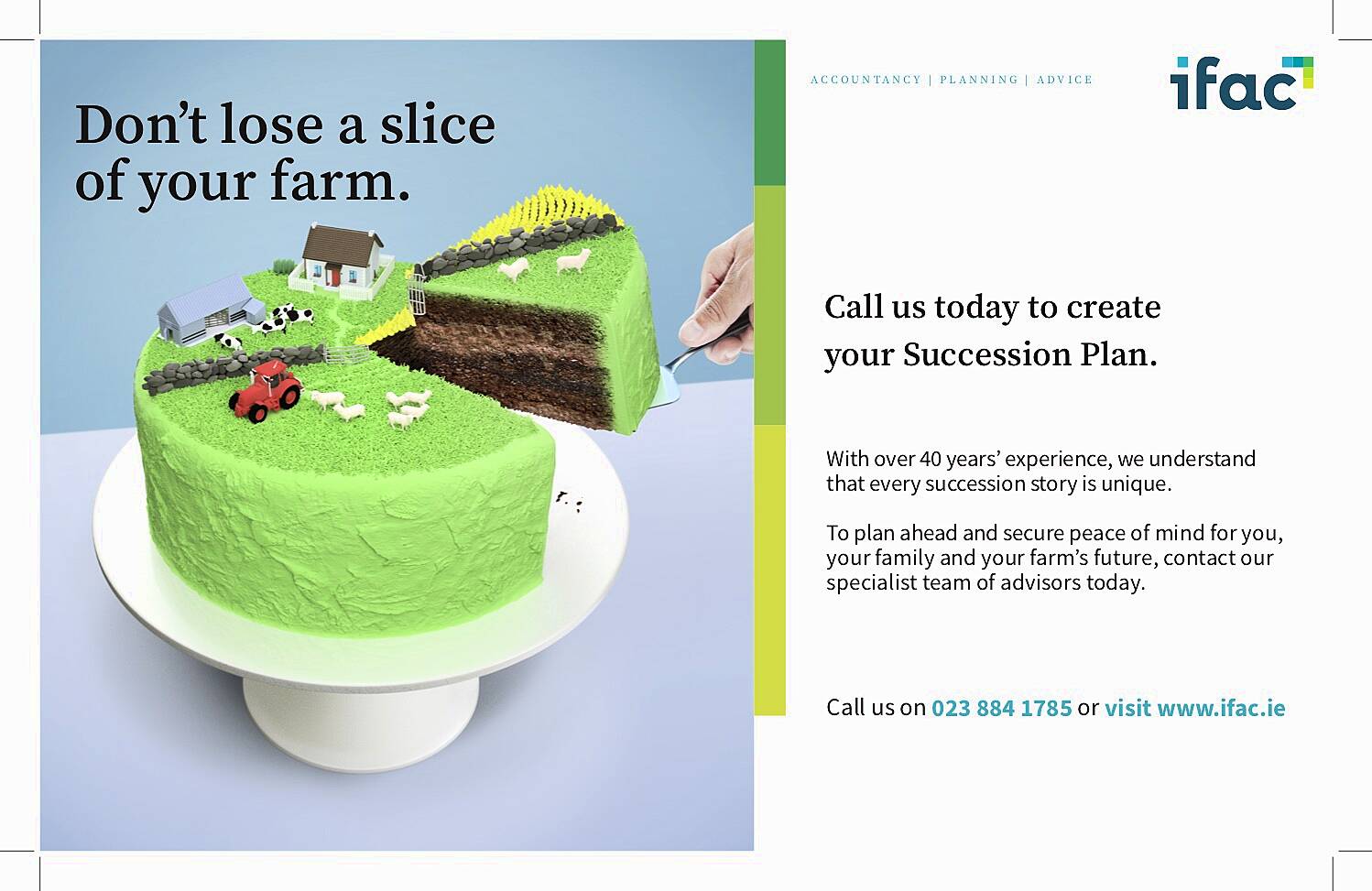BY GEAROID CONDON
Given the rising age profile of Irish farmers, it is worrying that so few have a formal succession plan. This not only puts farmers’ own financial security at risk, but it also potentially lines up problems for their families and successors.
As with all business decisions, the starting point for succession planning is clarifying your objectives. Do you want to continue to be involved in the farm? Have you a successor in mind? Have you clarified your family’s wishes?
Asking your accountant or agri-advisor to chair a family meeting can be a good way to tease matters out and ensure that the decisions you make are not overly influenced by emotional factors.
A key decision will be whether the transfer of your business will take place during your lifetime or after your death. Your accountant will explain your options and help you choose which is best for your business.
If you decide on a lifetime transfer, you will need to protect your personal financial security and ensure that you will have adequate retirement income for you and your spouse/partner.
You can then decide what provision to make for your children.
Remember a site can be given by a parent to a child tax-free provided the site is less than an acre and valued at less than €500,000.
The Income Tax impact of your plan on both you and your successor will need to be reviewed. Factors that can affect this include off-farm earnings, whether you intend to continue to draw an income from the farm, and so on.
You then need to look at the impact of capital taxes:
• Capital Acquisitions Tax (33%) is charged to the transferee however subject to satisfying certain conditions, Agricultural Relief can eliminate this liability.
• Capital Gains Tax (33%) is charged to the transferor. If you are aged under 66 and passing the farm to a family member, CGT relief is unlimited provided you satisfy the relevant conditions. If you are over 66, the relief is restricted to €3m. The rules are more complicated for transfers outside the family.
• There is a cumulative lifetime cap of €70,000 on the amount of tax relief that a young trained farmer can claim for stamp duty relief, stock relief and the succession farm partnerships tax credit.
For transfers after death, only Capital Acquisition Tax is payable. The rate is 33% on amounts received above a certain threshold. For parent to child transfers, the threshold is €320,000.
Regardless of how and when you intend to transfer the farm, once you know your objectives, you can document a sensible succession plan that will protect you, your family and your business.
You will then need to update your Will to reflect the decisions you have made. Contact Gearoid Condon in ifac’s offices in Bandon and Skibbereen today for an initial chat to get the ball rolling.
Gearoid Condon is a partner at IFAC Ireland









